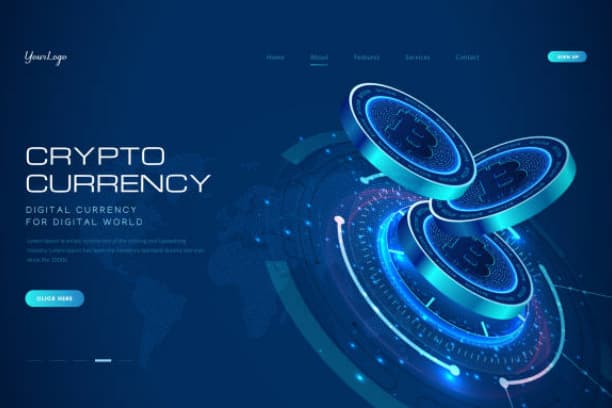Chainlink is one of the most influential decentralized prophecy machine networks in the current cryptocurrency space, providing a real and reliable data source for the operation of smart contracts by connecting real-world data to the blockchain world. In this article, we'll take an in-depth look at what Chainlink is, the role of the LINK token in its ecosystem, and what the future holds for the program. If you are interested in cryptocurrencies, blockchain technology and its applications, Chainlink is undoubtedly one of the most important projects worth paying attention to.

What is Chainlink?
Chainlink is a decentralized network of prophecy machines that enable smart contracts on the blockchain to securely interact with external data sources. Simply put, a prophet is a bridge between the blockchain and real-world data. In the closed environment of the blockchain, smart contracts cannot directly access external data, which limits their application scenarios. Chainlink provides a solution by providing real, reliable data that allows smart contracts to react to external events such as weather conditions, stock market quotes, etc. The network consists of multiple nodes. The network consists of multiple nodes that provide data services and are paid for by Chainlink's native token, LINK.
The Role of LINK Tokens in the Chainlink Ecosystem
LINK tokens are one of the core drivers of the Chainlink network and are primarily used to pay for prophecy machine services. The operation of Chainlink relies on decentralized prophecy machine nodes to provide data, and these nodes are required to hold and lock up a certain number of LINK tokens as incentives and security deposits. Data providers are rewarded with LINK tokens when they provide correct data, and they lose a portion of their pledged LINK tokens if they provide incorrect or unreliable data. This mechanism ensures the security of the Chainlink network and the authenticity of the data.
The function of LINK tokens is not only limited to payment and incentives, but also has a governance function.As the Chainlink network continues to develop, holders of LINK tokens may participate in the network's governance decisions, suggesting or voting on future technology upgrades and policy changes. This makes LINK tokens an important part of the Chainlink ecosystem and crucial to maintaining the long-term stability of the network.
Chainlink's Technical Advantages and Application Scenarios
One of Chainlink's greatest technical advantages lies in its decentralized nature. Compared with traditional centralized predicators, Chainlink's decentralized network can significantly reduce the risk of a single point of failure and improve data reliability and security. In many smart contract applications, the authenticity of data is of paramount importance, especially in high-risk areas such as finance and insurance, and Chainlink's decentralized design allows enterprises in these industries to rely on blockchain technology for data exchange and processing with confidence.
Chainlink's application scenarios are very extensive and cover a wide range of fields. Financial services is one of its most important applications. The prophet can provide real-time and accurate price data for decentralized financial (DeFi) applications, which can guarantee the smooth operation of loans and derivatives trading. Insurance businesses can also rely on the data provided by Chainlink to realize automatic claims, such as flight delay insurance based on weather data. The Internet of Things (IoT), gaming economy, and supply chain management are also actively exploring Chainlink's applications, all of which demonstrate Chainlink's enormous potential in the smart contract ecosystem.
Chainlink's Development Prospects: Challenges and Opportunities
Chainlink's development prospect is full of opportunities, but also faces certain challenges. With the popularity of smart contracts and the expansion of blockchain applications, the demand for high-quality predicators will only increase, and Chainlink, as a leader in this field, will undoubtedly benefit from this trend, especially in the financial, insurance and digital asset fields. However, the number of competitors in the market is increasing, with projects such as Band Protocol and API3 also competing for market share.
Chainlink's decentralized network requires a large number of nodes to provide services, which may face some technical and operational challenges. How to ensure the quality and accuracy of data providers and how to build an efficient decentralized infrastructure on a global scale will be the key issues in the future development. As technology advances, Chainlink is expected to overcome these challenges and take a more prominent role in the global blockchain ecosystem.
Chainlink's Ecosystem and Partners
Chainlink's success would not have been possible without its strong ecosystem and partners; Chainlink has already established partnerships with a number of top-tier enterprises and blockchain projects, including Google Cloud, Oracle, SWIFT, and other leading tech companies around the world. These partnerships have not only increased Chainlink's market recognition, but also further demonstrated the viability and value of its technology in the real world.
Chainlink's decentralized prophecy machine network also works closely with numerous blockchain projects to provide them with reliable data services. These collaborations not only promote Chainlink's technological development, but also the innovation and application of the blockchain industry as a whole. In the future, with the popularization of blockchain technology and the entry of more industries, Chainlink's ecosystem will become even larger, which will also provide stronger support for the value-added of LINK tokens.
Frequently Asked Questions Q&A
Q1: How does Chainlink ensure the accuracy and reliability of its data?
Chainlink ensures data accuracy through decentralized prediction machine nodes. Each node provides data and pledges LINK tokens, which are lost if the data is inaccurate. This incentive and penalty mechanism ensures data authenticity and system security.
Q2: How can I participate in the Chainlink ecosystem?
To participate in the Chainlink ecosystem, one can pledge LINK tokens to become a prophecy node or use data provided by Chainlink in a decentralized financial platform. Further participation is possible by purchasing LINK tokens and participating in its governance.
Q3: What factors affect the price of LINK tokens?
The price of LINK tokens is primarily influenced by factors such as growing demand, Chainlink ecosystem expansion, and partnerships. As more companies and projects rely on Chainlink's data services, demand for LINK may increase, which will have an impact on the price.
This article introduces the basics of Chainlink and its LINK token, and provides an in-depth analysis of the project's ecological value and development prospects. With the advancement of technology, Chainlink is expected to become an integral part of the blockchain field, providing more reliable support for the popularization and application of smart contracts.














